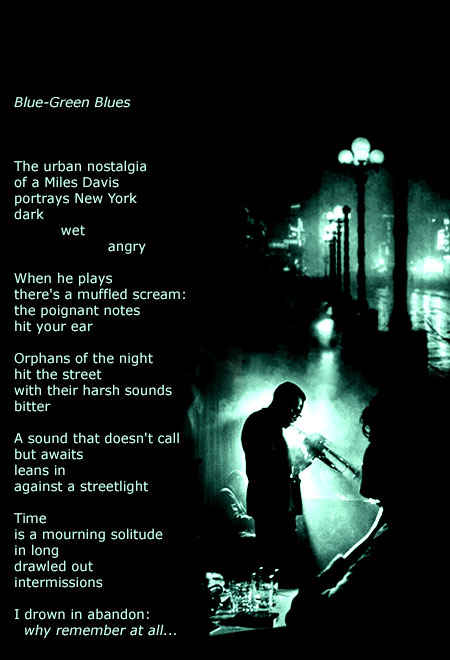fridayam
Literotica Guru
- Joined
- May 20, 2008
- Posts
- 585
Forgive the title--a song by the Bonzo Dog Doo-Dah Band A thread for Jazz poems.
A thread for Jazz poems.
"Ruby My Dear" (Take 3)
Monk tries the keys
one by one from
the big bunch
on his fingers,
each one jangling with
possibilities:
what if I went there?
It started so simple but
the trying is what is
torture and fun because
there are so many chords
between those written.
"Ruby My Dear" (Take 3)
Monk tries the keys
one by one from
the big bunch
on his fingers,
each one jangling with
possibilities:
what if I went there?
It started so simple but
the trying is what is
torture and fun because
there are so many chords
between those written.




